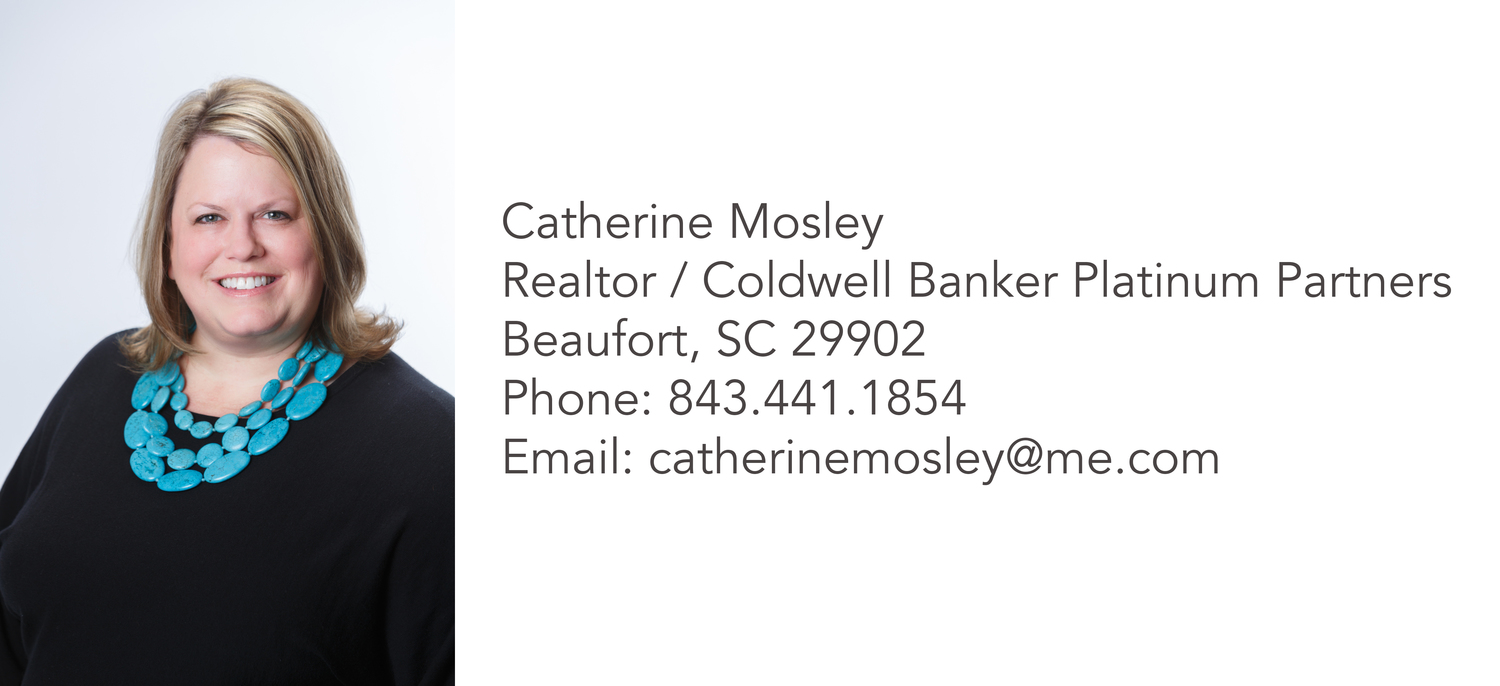February Newsletter about Mortgage Downpayments
/Hello from Beautiful Beaufort, SC on this 73 degree February day!
I hope this finds you doing well and staying warm this winter regardless of where this finds you. Spring is just around the corner and I hope you are as excited as I am to see the flowers start blooming!
I wanted to share the below article with you about Mortgages and down payments. It provides great tips for novices and good reminders for experienced real estate professionals. As always, if there is anything I can do to help with your real estate needs in the Beaufort and surrounding areas of Bluffton and Hilton Head, please let me know. My information is below and I would love to hear from you.
The Mortgage Professor: What is a down payment, anyway?
BY JACK GUTTENTAG, The Mortgage Professor
I recently set out to write about a new program of down payment insurance but quickly realized that such an article should be prefaced by another one that clarified what the down payment is and what it is not. Look for the piece on down payment insurance next week.
DEFINITION OF DOWN PAYMENT
To a homebuyer, the down payment is the sale price less the mortgage loan amount. It is not the same as the buyer's cash outlay, although the two are often confused. They differ by the amount of settlement costs charged to the buyer. For example, if the price is $100,000, settlement costs $5,000 and the buyer has cash of $20,000, the amount available for down payment is only $15,000. That is why many homebuyers pay a higher interest rate in exchange for a lender rebate that will cover some or all of the settlement costs.
The down payment is also not the same as the owner's equity, except on the day of the purchase. Owner equity is what the owner could net from selling the property. Where the down payment is a one-time measure as of the purchase date, owner equity changes month by month. It will rise above the down payment as the mortgage loan balance is paid down, and as the market value of the house rises, due either to property improvements or to market changes. Of course, owner equity can also decline if house prices fall, as many owners discovered during 2007-2009.
APPRAISED VALUE VERSUS SALE PRICE
One of the questions I get with some frequency is whether, in the case where the appraised value is higher than the sale price, the difference can be counted as part of the down payment. The answer is no. From the lender's perspective, the property value used in determining the down payment is the sale price or appraised value, whichever is lower. The only exception to this is when the seller provides a gift of equity to the buyer, who is almost always a family member. In this case, the lender recognizes that the house is being priced below market and will accept the appraisal as the value. Most lenders in such cases will require two appraisals, and they will take the lower of the two.
LAND AS THE DOWN PAYMENT
Another common question is whether land purchased as part of a plan to construct a new home can be used as down payment. The answer is yes, but how the land is valued for that purpose depends on how long it has been held. If the owner has held the land for awhile, the lender will appraise the completed house on the lot, and the difference between the appraisal and the cost of construction will be viewed as the down payment.
For example, if the builder charges $160,000 for the house and the appraisal comes in at $200,000, the land is assumed to be worth $40,000. A loan of $160,000 in this case would have a down payment of 20 percent.
If the land was purchased recently, however, the lender will not value it for more than its purchase price. If the price was only $30,000, for example, the lender will value it at $30,000, and the down payment will only be 15.8 percent.
DOWN PAYMENT AND LTV
While homebuyers tend to focus on the down payment, underwriting and mortgage insurance requirements are defined in terms of the ratio of loan amount to property value, or LTV, where property value is always the lower of sale price and appraised value. One measure is easily converted into the other using the formula of: Down payment equals 1 minus LTV. Home buyers can avoid having to purchase mortgage insurance, for example, if the LTV is no more than 80, meaning that the down payment is no less than 20. Using LTV avoids possible confusion regarding what is included in the down payment, including the confusion regarding settlement costs noted above.
DOWN PAYMENT AND MORTGAGE INSURANCE
From the borrower's perspective, a larger down payment means a lower mortgage insurance premium. For example, a home purchaser with a good credit score who puts 3 percent down on a conventional loan (LTV is 97) will pay a monthly mortgage insurance premium about twice as large as the premium on an otherwise identical loan with 5 percent down, and four times as large as the premium on an otherwise identical 15 percent loan. With 20 percent down (LTV equals 80), no mortgage insurance is required.
House purchasers who need mortgage insurance to buy their first house usually aim to accumulate sufficient equity in that house that when they upgrade to their next house, they won't need mortgage insurance. An interesting new tool designed to facilitate that process, called down payment insurance, is discussed next week
Read more here: http://www.islandpacket.com/news/business/real-estate-news/article57038218.html#storylink=cpy

